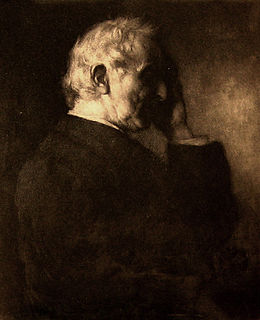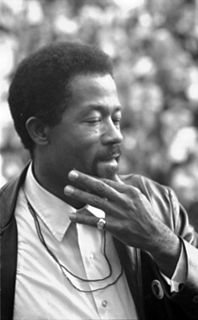A Quote by T. S. Eliot
If time and space, as sages say, Are things which cannot be, The sun which does not feel decay No greater is than we. So why, Love, should we ever pray To live a century? The butterfly that lives a day Has lived eternity.
Related Quotes
He who cannot find time to consult his Bible will one day find he has time to be sick; he who has no time to pray must find time to die; he who can find no time to reflect is most likely to find time to sin; he who cannot find time for repentance will find an eternity in which repentance will be of no avail; he who cannot find time to work for others may find an eternity in which to suffer for himself.
Everything starts with prayer. Love to pray-feel the need to pray often during the day and take the trouble to pray. If you want to pray better, you must pray more. The more you pray, the easier it becomes. Perfect prayer does not consist of many words but in the fervor of the desire which raises the heart to Jesus.
Even so does he who provides for the short time of this life, but takes no care for all eternity; which is to be wise for a moment, but a fool for ever; and to act as crossly to the reason of things as can be imagined; to regard time as if it were eternity, and to neglect eternity as if it were but a short time.
Transiency is stamped on all our possessions, occupations, and delights. We have the hunger for eternity in our souls, the thought of eternity in our hearts, the destination for eternity written on our inmost being, and the need to ally ourselves with eternity proclaimed by the most short-lived trifles of time. Either these things will be the blessing or the curse of our lives. Which do yon mean that they shall be for you?
In the daily lives of most men and women, fear plays a greater part than hope: they are more filled with the thought of the possessions that others may take from them, than of the joy that they might create in their own lives and in the lives with which they come in contact. It is not so that life should be lived.
Whereas I think: I’m lying here in a haystack... The tiny space I occupy is so infinitesimal in comparison with the rest of space, which I don’t occupy and which has no relation to me. And the period of time in which I’m fated to live is so insignificant beside the eternity in which I haven’t existed and won’t exist... And yet in this atom, this mathematical point, blood is circulating, a brain is working, desiring something... What chaos! What a farce!
What differentiates time from space is that time does have a direction. In that sense it is different from space. I think that's certainly true that whereas spatial dimensions don't have direction or an arrow, time does. It runs from past to future. But I see that arrow of time as rooted in a deeper metaphysical reality, namely the reality of temporal becoming - of things coming to be and passing away. That is why time has this arrow. But it's not sufficient to simply say that time and space are distinct because time has a direction. The question will be: why does it have a direction?
The things that most deserve our gratitude we just take for granted. Without air we cannot live for more than a minute or two. Everyday we are breathing in and breathing out, but do we ever feel grateful to the air? If we do not drink water, we cannot survive. Even our body is composed to a large extent of water.But do we give any value to water? Every morning when we open our eyes, we see the sun blessingfully offering us light and life-energy, which we badly need. But are we grateful to the sun?
And why does it make you sad to see how everything hangs by such thin and whimsical threads? Because you’re a dreamer, an incredible dreamer, with a tiny spark hidden somewhere inside you which cannot die, which even you cannot kill or quench and which tortures you horribly because all the odds are against its continual burning. In the midst of the foulest decay and putrid savagery, this spark speaks to you of beauty, of human warmth and kindness, of goodness, of greatness, of heroism, of martyrdom, and it speaks to you of love.
Though one should live through all the time from Adam and all the time to come before the judgment day doing good works, yet he who, energising in his highest, purest part, crosses from time to eternity, verily in the sight of God this man conceives and does far more than anyone who lives throughout all past and future time, because this now includes the whole of time. One master says that in crossing over time into the now each power of the soul will surpass itself. . . .
The humans live in time but our Enemy destines them to eternity. He therefore, I believe, wants them to attend chiefly to two things, to eternity itself, and to that point of time which they call the Present. For the Present is the point at which time touches eternity. Of the present moment, and of it only, humans have an experience analogous to the experience which our Enemy has of reality of whole; in it alone freedom and actuality are offered to them.






































